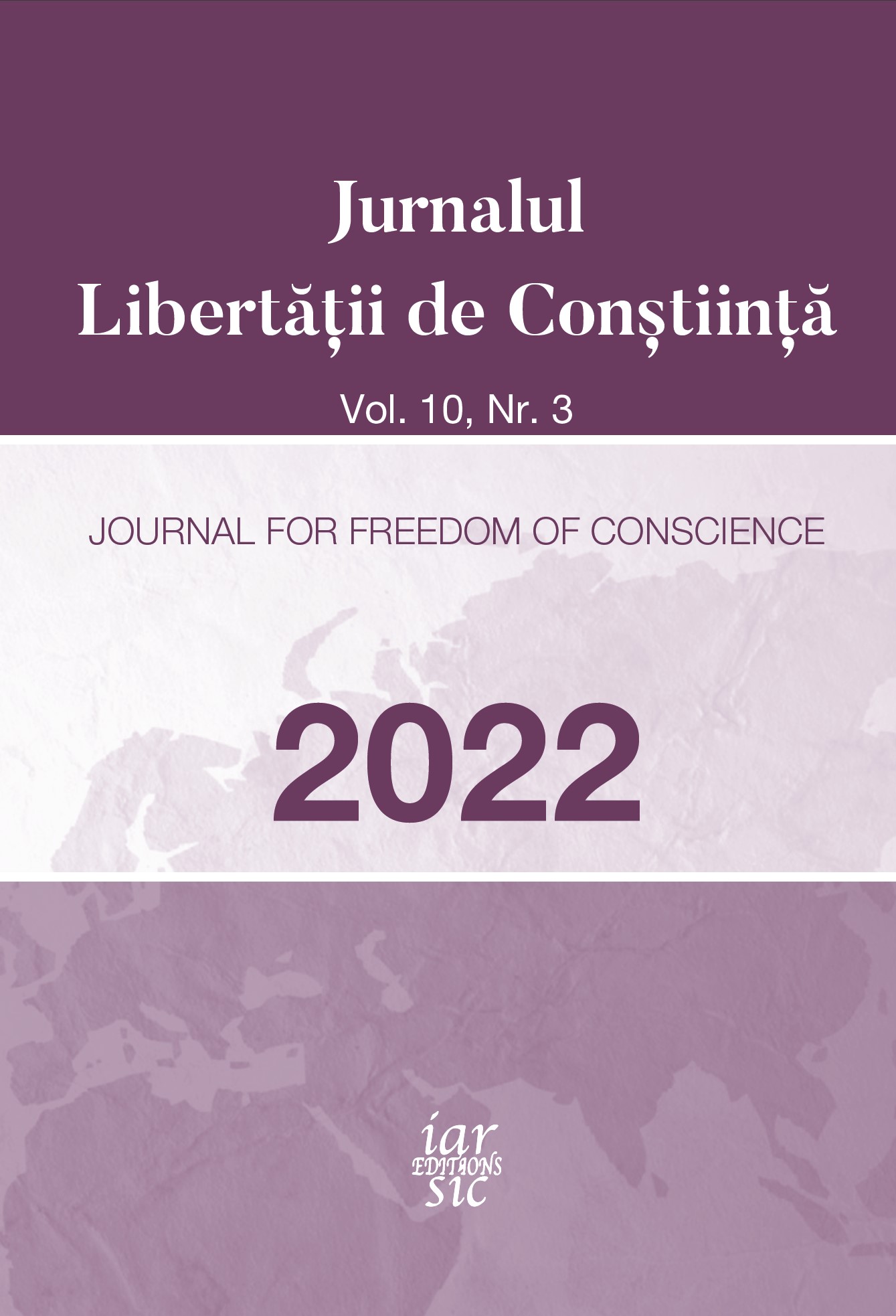CONSIDERAȚII ETICO-LEGISLATIVE ȘI JURISPRUDENȚIALE PRIVIND OBIECȚIA DE CONȘTIINȚĂ ÎN DOMENIUL MEDICAL
Ethical, Legislative and Jurisprudential Considerations on the Conscientious Objection in the Medical Field
Author(s): Cristina-Luiza ErimiaSubject(s): Human Rights and Humanitarian Law, Health and medicine and law, EU-Legislation
Published by: Editions IARSIC
Keywords: fundamental rights; freedom of thought; conscience and religion; conscientious objection; European Court of Human Rights; medical professions; professional ethics;
Summary/Abstract: The freedom of thought, conscience and religion is a fundamental right, recognized not only by Article 9 of the European Convention on Human Rights, but also by many international, European and national instruments. When they consider that their right to the freedom of conscience and of religion is threatened, health care providers in general (individual staff but also hospitals or clinics, including private and denominational ones) may invoke the conscientious objection when refusing to perform certain procedures, such as abortion or euthanasia. The right to conscientious objection is based on the ethical codes of the medical professions and is specifically recognized by the Charter of Fundamental Rights of the European Union, Chapter “Freedom of thought, conscience and religion”, Article 10, Section 2: “The right to conscientious objection is recognised, in accordance with the national laws governing the exercise of this right.” With this in mind, this article aims to analyse, on the one hand, the key principles and fundamental decisions developed by the case law of the European Court of Human Rights in defense of the freedom of thought, conscience and religion. On the other hand, based on the case law of the Court, this article aims to show that Article 9 does not protect every act motivated or inspired by a religion or belief and does not always guarantee the right to behave in public in a manner dictated or inspired by religion or belief and how, in certain situations, when exercising the freedom to manifest one’s beliefs, a person may have to take into account his or her particular professional circumstances, such as in the case of health professionals.
Journal: Jurnalul Libertății de Conștiință
- Issue Year: 10/2022
- Issue No: 3
- Page Range: 400-409
- Page Count: 10
- Language: Romanian

